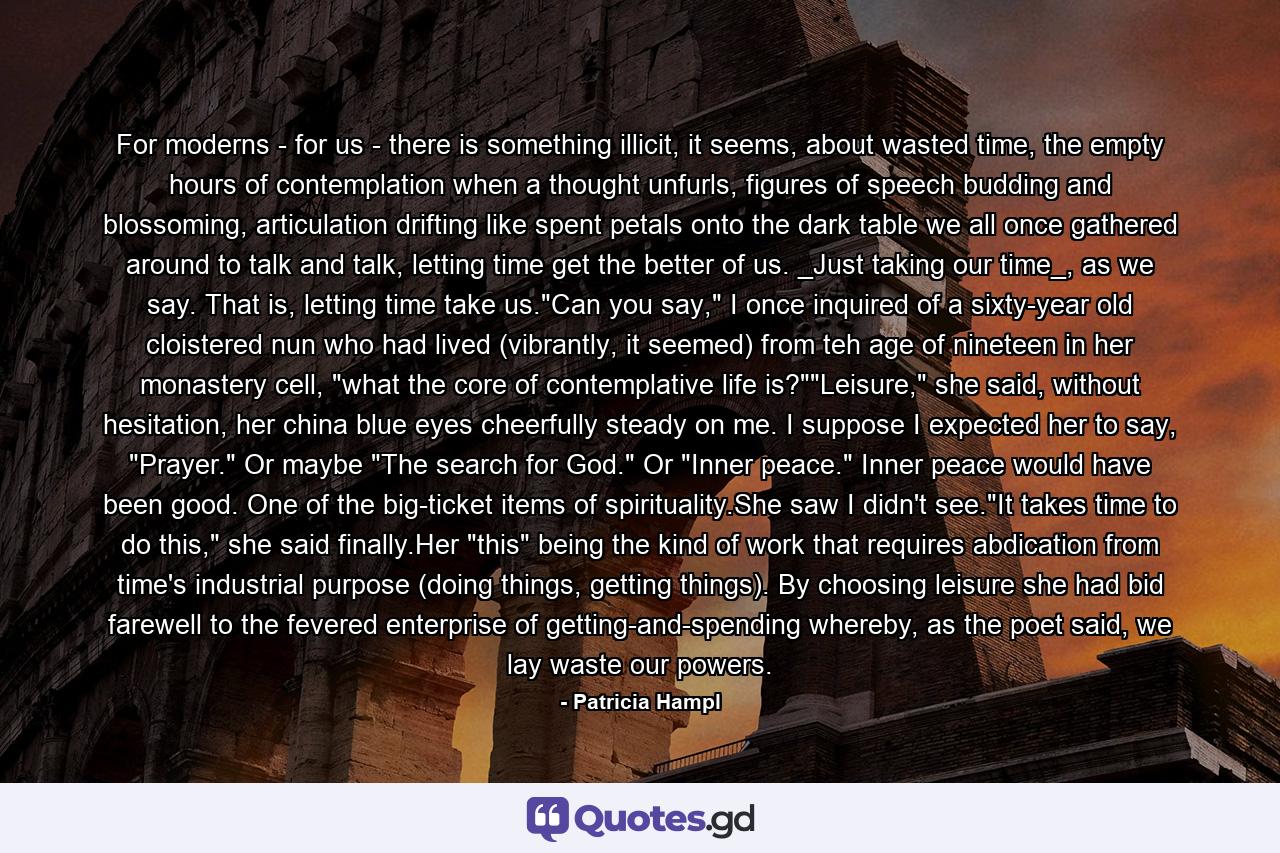For moderns – for us – there is something illicit, it seems, about wasted time, the empty hours of contemplation when a thought unfurls, figures of speech budding and blossoming, articulation drifting like spent petals onto the dark table we all once gathered around to talk and talk, letting time get the better of us. _Just taking our time_, as we say. That is, letting time take us.”Can you say,” I once inquired of a sixty-year old cloistered nun who had lived (vibrantly, it seemed) from teh age of nineteen in her monastery cell, “what the core of contemplative life is?””Leisure,” she said, without hesitation, her china blue eyes cheerfully steady on me. I suppose I expected her to say, “Prayer.” Or maybe “The search for God.” Or “Inner peace.” Inner peace would have been good. One of the big-ticket items of spirituality.She saw I didn’t see.”It takes time to do this,” she said finally.Her “this” being the kind of work that requires abdication from time’s industrial purpose (doing things, getting things). By choosing leisure she had bid farewell to the fevered enterprise of getting-and-spending whereby, as the poet said, we lay waste our powers.
